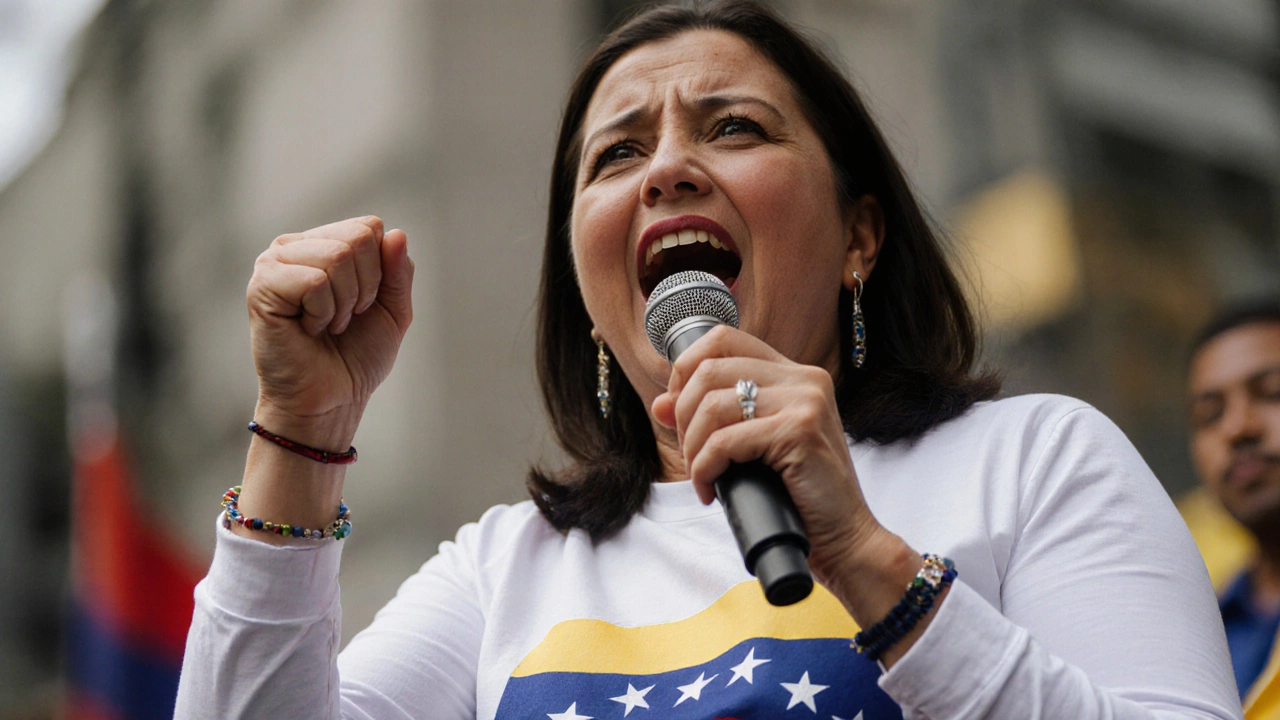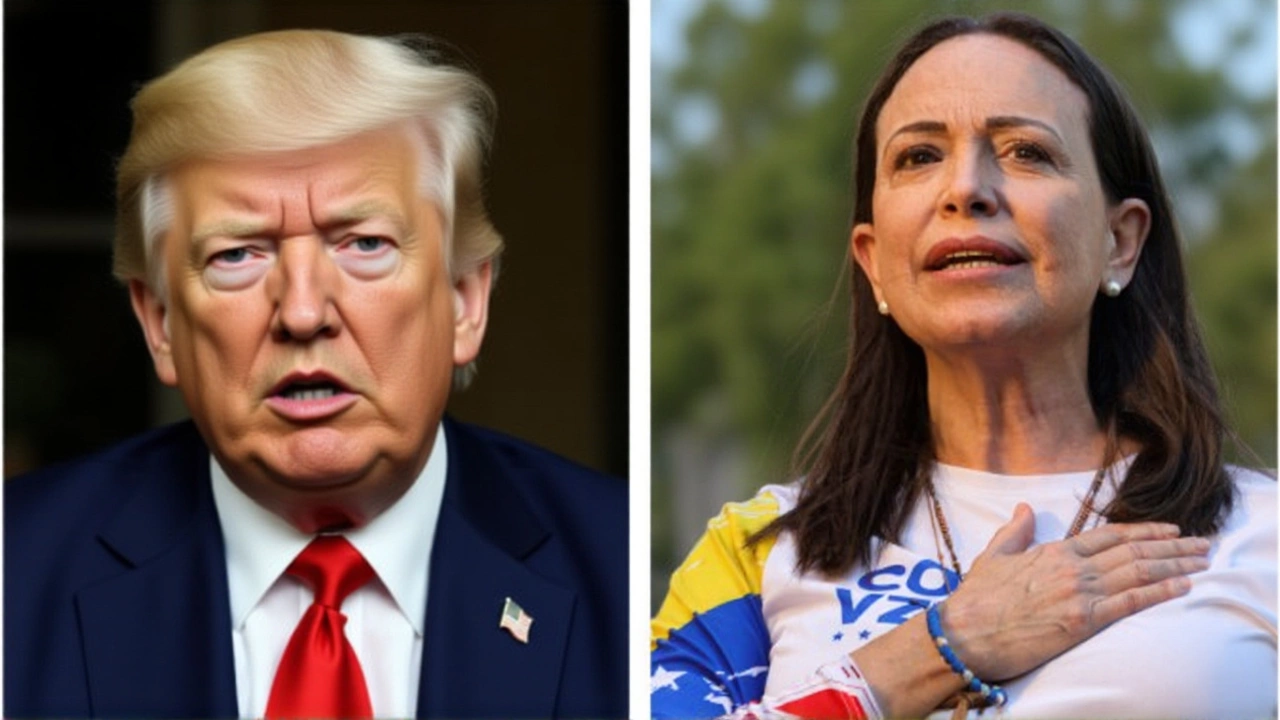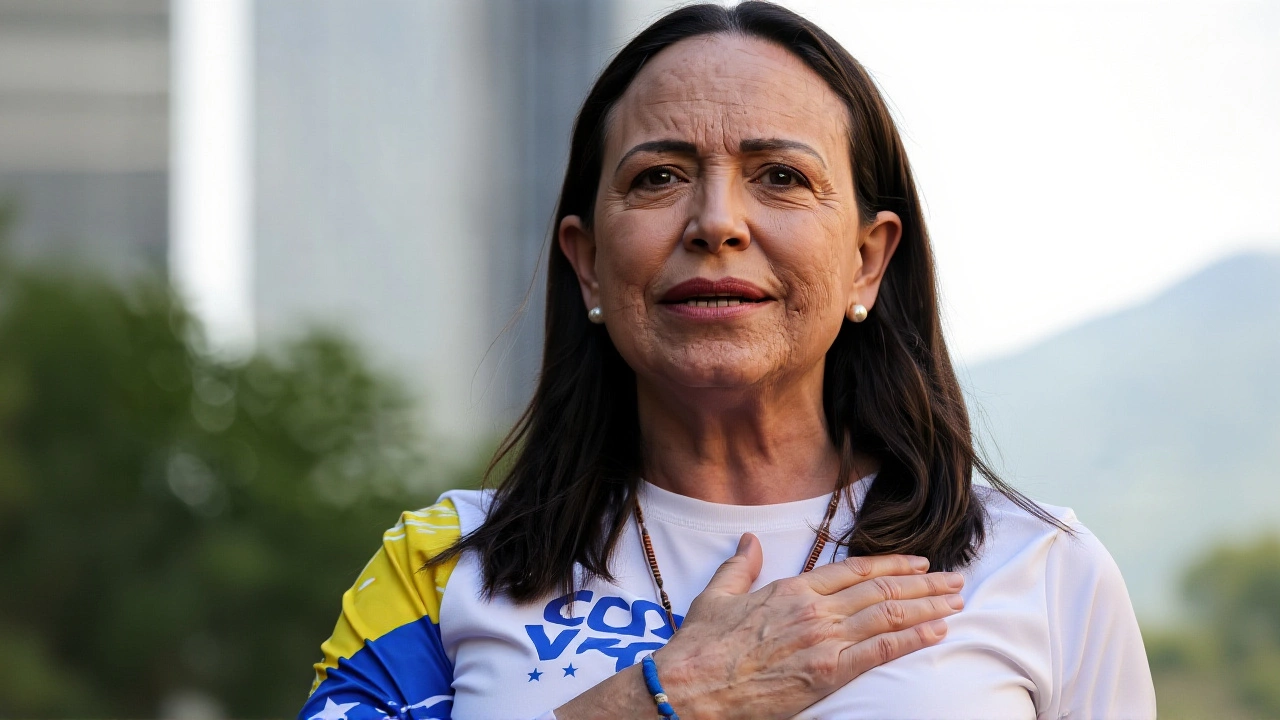When María Corina Machado, National Coordinator of Vente Venezuela heard the announcement in Oslo on 10 October 2025, the reaction in Caracas was a mixture of triumph and stark anxiety.
At Nobel Peace PrizeOslo, the Norwegian Nobel Committee praised Machado as a "unifying figure in Venezuela’s political life" who has persisted in the country despite “intense persecution”. The ceremony, held at the Oslo City Hall at 12:00 PM CET, placed a spotlight on a dispute that has dragged on for more than a decade.
Background: Machado’s Political Rise
Born in Caracas in 1969, Machado entered national politics after the 2010 parliamentary elections, winning the most votes of any candidate in the country. She served in the National Assembly of Venezuela from 2011 until her abrupt removal on 21 March 2014 by Diosdado Cabello, then president of the Assembly.
Her ouster followed a bold speech at the Organization of American States Permanent Council in Washington, where she denounced human‑rights violations by the Maduro regime. International observers later described the dismissal as a breach of due process.
In 2012 Machado co‑founded the liberal party Vente Venezuela, positioning herself as a bridge between disparate opposition factions. She lost the 2012 primary to Henrique Capriles but remained a key organizer, later helping launch the “Soy Venezuela” platform with figures such as Antonio Ledezma and Diego Arria.
Nobel Peace Prize Announcement
The Nobel Committee, chaired by former Swedish Foreign Minister Carl Bildt, released a 12‑page citation. "Her decades‑long advocacy for democratic rights, pursued from within a country under authoritarian rule, embodies the spirit of the prize," the statement read.
In a brief televised interview, Machado said, "I did not come to Oslo for personal glory. I am here because the Venezuelan people deserve a future where dissent is not punished." Her words were later echoed by several human‑rights groups, which noted that the award could pressure the Maduro government to ease its crackdown.
Reactions Inside Venezuela
Even as official state media in Venezuela dismissed the honor as “foreign meddling”, opposition rallies in Caracas, Maracaibo, and Valencia swelled to an estimated 15,000 participants, according to local monitors. Many carried banners reading “Machado vuelve, Venezuela avanza”.
Maduro’s spokesperson, Delcy Rodríguez, called the prize a “political stunt” designed to legitimize “imperialist interference”. Yet analysts at the Caracas‑based think‑tank Fundación Polar noted that the international attention could force the regime to moderate its most repressive measures, especially ahead of the 2026 presidential election.

International Perspectives
Western governments quickly issued statements. The United States Department of State praised the decision, saying it highlighted “the courage of civil‑society leaders confronting authoritarianism”. The European Union’s foreign policy chief, Josep Borrell, urged the Venezuelan authorities to respect the “democratic aspirations of the Venezuelan people”.
Conversely, the Russian Ministry of Foreign Affairs warned that the prize could “further polarize an already volatile situation”. A spokesperson for the Chinese embassy in Oslo called for “dialogue rather than external pressure”.
What the Award Means for Venezuela’s Future
Experts agree the prize shifts the narrative. Dr. Ana Pérez, a political scientist at the Universidad Central de Venezuela, writes, “The Nobel endorsement provides a kind of moral shield for opposition activists, making it harder for the regime to label them as foreign agents without attracting global criticism.”
However, the practical impact remains uncertain. The National Electoral Council, still controlled by Maduro allies, has barred Machado from holding public office for the foreseeable future. The opposition’s interim candidate, Edmundo González Urrutia, secured roughly 70 % of the vote in the disputed 2024 election according to opposition monitors, yet the official results declared Maduro the winner.
Should the Nobel recognition lead to increased diplomatic pressure, Venezuela could see a modest easing of sanctions, which currently restrict over $30 billion in oil revenues. Still, any shift will likely be gradual, with the regime weighing internal stability against external reputational damage.

Historical Comparisons
Machado’s laureate status joins a short list of peace prize winners who were active opposition figures: Aung San Suu Kyi (1991), Leymah Gbowee (2011), and Dmitry Muratov (2021). In each case, the award amplified international scrutiny but did not guarantee immediate political change.
Nonetheless, the Nobel Committee’s willingness to honor a figure still residing under an authoritarian regime signals a broader trend: a shift from recognizing solely “peace brokers” to elevating those who keep the hope of democratic renewal alive from within oppressive contexts.
Frequently Asked Questions
How does the Nobel Peace Prize affect the Venezuelan opposition?
The award gives the opposition a global platform and a moral shield that makes it harder for the Maduro regime to portray leaders like Machado as purely foreign agents. It may also encourage diplomatic actors to intensify pressure for political reforms, though concrete policy changes will likely unfold slowly.
What were the main reasons the Nobel Committee cited for honoring Machado?
The Committee highlighted her "decades‑long advocacy for democratic rights" and her willingness to stay in Venezuela despite persecution. They emphasized her role in uniting fragmented opposition groups and keeping international attention on human‑rights abuses.
Will the prize lead to a change in Venezuela’s sanctions regime?
Analysts suggest the prize could soften the stance of some sanctioning countries, potentially unlocking up to $30 billion in oil‑related funds. However, any relief will depend on tangible political concessions from the Maduro government.
How did Nicolás Maduro’s government react to the announcement?
State officials dismissed the prize as “foreign meddling” and accused Machado of serving imperialist interests. The regime has continued to bar her from public office and maintain a tight grip on electoral institutions.
What precedent exists for awarding the Nobel Peace Prize to opposition figures under authoritarian rule?
Previous laureates such as Aung San Suu Kyi (1991) and Leymah Gbowee (2011) were recognized while still facing repressive regimes. Their awards amplified global scrutiny but did not instantly transform their nations’ political landscapes.
 Oct, 10 2025
Oct, 10 2025
